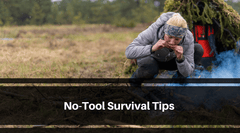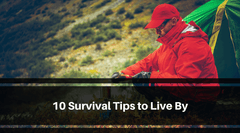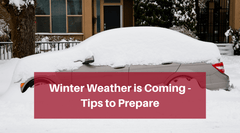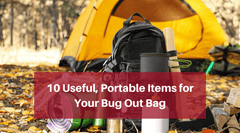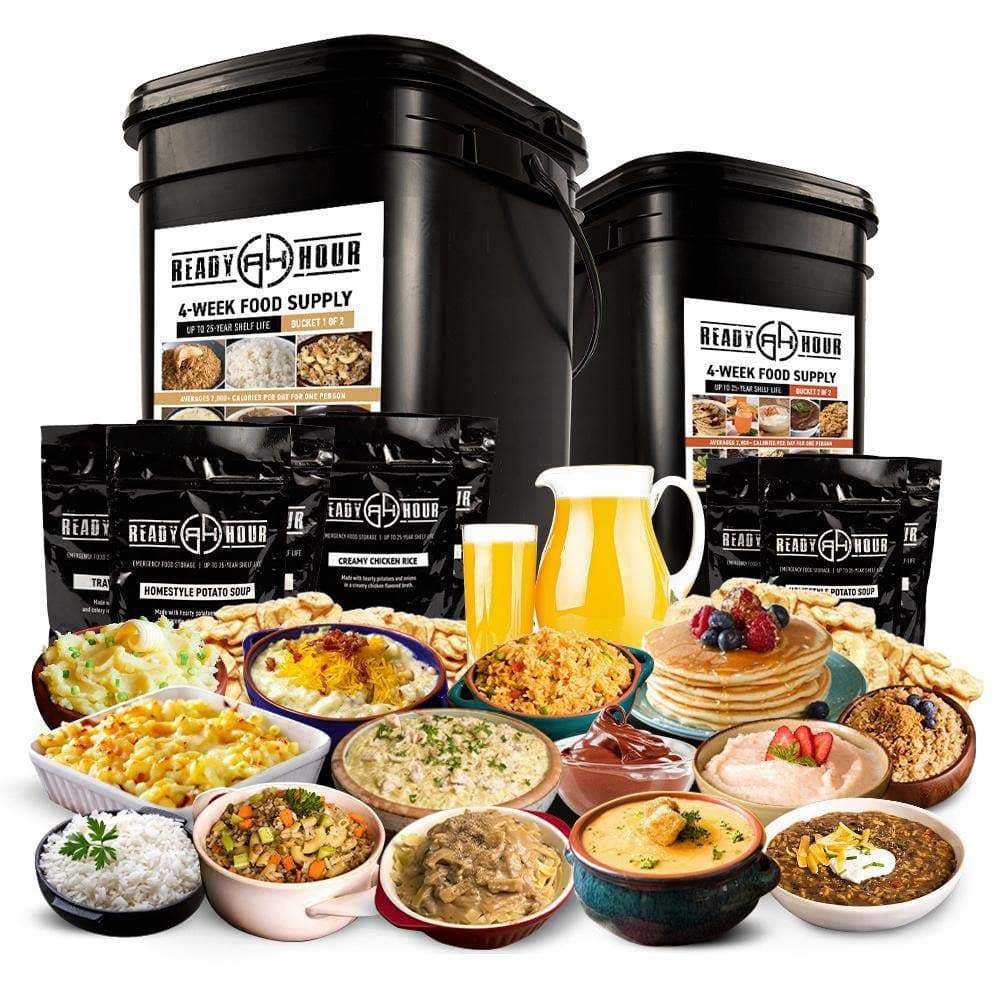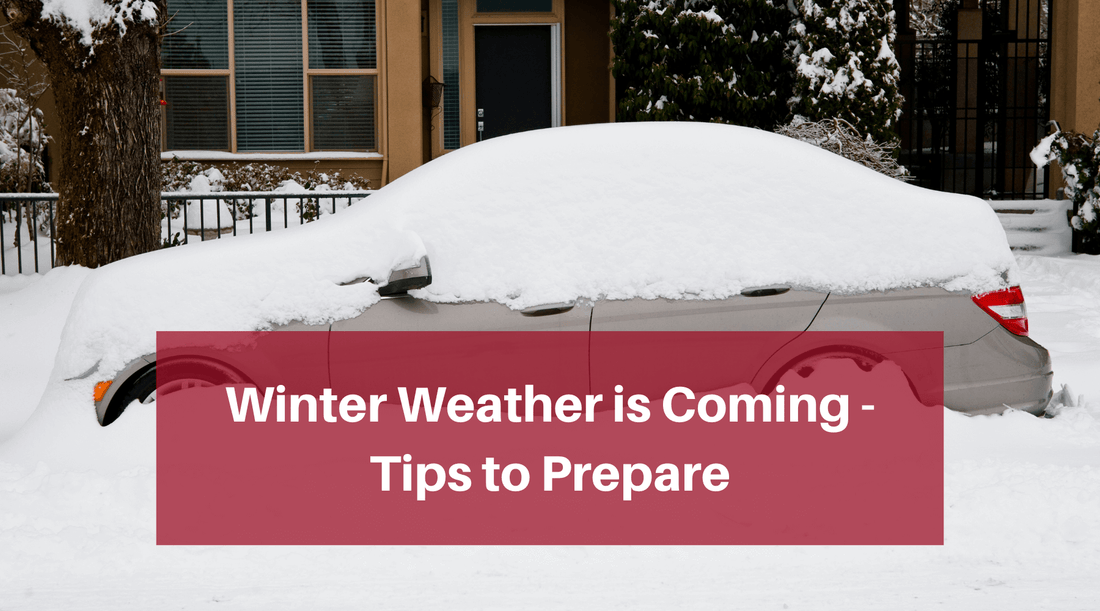
Happy Holidays!
The mighty Winter Solstice begins soon, and that means it's time to start preparing and gearing up for the season! This is a wonderful and treasured time of year; spending time with family and cherishing loved ones. Pulling out our beloved heirloom blankets and fuzzy coats, getting cozy by the fire over a cup of hot chocolate, relaxing on a rocking chair and maybe a fierce but friendly game of chess... However, depending on your area or whatever nature decides, there are also inherent and potential dangers ahead.
So, "weather" or not (pun intended) you're a tundra expert or not used to a region with heavy snowfall, winds or freezing rain - thousands of people every year have perished or have been seriously injured as a result of exposure to the elements. In an outdoor survival situation of course, this could involve everything from battling avalanches, succumbing to frigid temperatures or haphazardly falling into a frozen lake. How you handle these extreme moments will be vital to your survival.
This is why it's so important to be prepared before the first flakes start to fall, so let's start at home -
Make sure you have a good snow shovel and some ice melt to get ready for heavy snowfall. The best bet is to keep them in an easily accessible place, but either way, you'll be ready to clear your driveway and sidewalks to make them safe for yourself and your family if a storm hits or you have to bug-out in an emergency. Otherwise, you can take advantage of snow days and snowball fights! Survival in a snowstorm depends on being prepared, so don't wait until it's too late.
Power outages are a common nuisance and could last for 30 minutes, or over a week based on your region's power grid and the conditions. Remember to have plenty of blankets available and extra clothing to layer as much as possible. Don't forget to keep as much as you can on hand to start a fire as well.
Two very cool items are the 100 Hour Candle and Canned Heat. They both do exacty as their name states and having a candle for light in a Scrooge-type winter outage is a no-brainer. Also, Canned Heat is a champion for not only heat, but cooking as well. The coolest concept here is that it can be burned indoors due to its contents made with high-purity Diethylene Glycol that is odorless, non-toxic, spill safe, etc. That said - both of these can be lifesavers providing light and warmth in a ruthless, hunker down scenario.
It's always wise to stay informed by listening to the radio or checking online in preparation for updates. If there's no power or service - hopefully your cell phone still has a charge, so use it sparingly to avoid running out of battery. This is where a hand cranked, 4-1 flashlight, AM/FM radio, flashlight would be very helpful indeed.
Hand warmers and emergency thermal blankets are a good idea in any situation and if you're able - having a plan for heating your home ahead of time is essential.
One option is to consider is purchasing a generator. Generators are a savior when the power goes out, as they provide a reliable source of electricity for lights, appliances, and even heaters. If you choose to purchase a generator, be sure to select one that is the appropriate size for your needs. You'll also need to have enough fuel on hand to run the generator for an extended period of time, so that's something to keep in mind.
By following these simple tips, you can help ensure that you weather the storm safely and comfortably.
Now let's talk about travel
A winter storm can be crippling to a community by knocking out power lines and making roads impassable. If you do predict that you may find yourself caught in the middle of a winter storm it's best to have short-term or long-term storable foods. Canned goods like dried fruit, and peanut butter are also nutritous and sustainable options to keep on hand. Don't forget to check the forecast and only go out if necessary. And when you do travel, take extra food and water in case you get stranded... Duh!
Remember to keep your vehicle in good working condition and maintained before-hand. Simple things as in keeping an eye on your tires and brakes for icy roads, regular maintanence so you can rely on actually getting to your destination, make sure the gas tank is full and you have extra tanks ready, etc. Tire chains are also a must!
And, if you do end up stranded in your car, hopefully you're stocked with blankets, food and water and all of the above. If you are in deep snow or in the woods, you may not get help quickly, so in that case remember to stay calm. If you can't open your doors in an extreme event, only run the vehicle for heat in short bursts to conserve your fuel and also to avoid the risk of carbon monoxide poisoning. Use your lights sparingly if there is any other traffic, etc.
Also, before you head to Grandma's or have to make a great escape - please let your loved ones know where you are headed and the route, as well as when to expect you in case an emergency arises so they can call for help if you're in a remote location and have no service or outside contact.
How to stay warm without heat -
Easier than you think... Dress in layers, drink warm fluids like water, and stay active.
Also, in extreme cold - Avoid Alcohol!
The legend of the warmth from a good whiskey since the days of the cowboy vagabonds are in our historical lexicon, however alcohol may "feel" warm but in extreme cold, it is a deceptive and deadly risk. It actually will act as a vasodilator and drop your body temperature. This happens because the blood vessels near the skin's surface will dilate and offer the sensation of heat at the same time pulling actual the warmth from your body's organs. So, it might be fun while it lasts but try and stick with water, so you can celebrate when you make it home for Christmas! Sorry to be a life-saving party pooper.
This leads us to a risk and awareness of Hypothermia. (Not the Def Leppard Album)
Hypothermia occurs when the body loses heat faster than it can produce heat. It can happen even at temperatures as high as 60 degrees Fahrenheit if you're not dressed properly or if you get wet. Symptoms of hypothermia include shivering, confusion, slurred speech, and drowsiness. If left untreated, it can lead to cardiac arrest and death. Bummer.
Once Frost-Bitten, Twice Shy -
Symptoms of frostbite include numbness, tingling, and pale or grayish-white skin. If not treated promptly, frostbite can lead to permanent tissue damage. If you think someone has hypothermia or frostbite, it's important to seek medical help immediately. Remove wet clothes, get them dry and use any of the warmth and survival gear you may have. And just stay positive.
So, in conclusion - Winter can be a beautiful but dangerous season. By taking simple precautions such as insulating your home against the cold weather, dressing in layers, staying hydrated, and keeping a few essential supplies in your home and vehicle - you can help ensure a safe and fun winter season for yourself and your loved ones.
Stay Safe and warm from all of us at Prepare Today!


